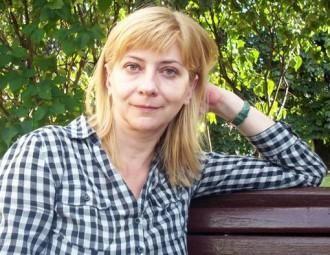Iryna Khalip is released from completing her sentence

Currently the sentence of the independent journalist and a wife of former presidential candidate Andrei Sannikau was vacated by Minsk court decision after a 2-year respite.
Let us recall that Iryna Khalip was sentenced to a prison term for participating in 'mass riots' on December 19, 2010.
On Friday, July 19, Ms. Khalip was granted complete freedom at the request of the probation department of the Partyzanski district police station in connection with the expiration of the suspension of her two-year prison term. She could have been sent to a correctional institution or had the suspension of her prison term prolonged.
Judge Ryta Shahrai, who is on the European Union’s entry ban list, presided over the trial. After having a private conversation with the Judge Shahrai before the beginning of the hearing, Ms. Khalip demanded that the judge should stand down because she wanted no one to be present at the hearing, including journalists, the defendant’s family members and Prosecutor Natalya Sakalova.
Ms. Shahrai rejected the demand but allowed journalists who had no recording equipment to be present in the courtroom.
“Almost three years of life has de facto been taken away from me,” Ms. Khalip told reporters after the hearing. “If someone believes that I’m a free person now, this is a mistake. I’ve de facto lived for two years under house arrest, and now I’m expected to say ‘thank you’ for not being imprisoned.”
Ms. Khalip recalled that although there had been scenes of joy when former political prisoners Vasil Parfiankou and Uladzimir Jaromenak were leaving prison, new criminal cased had recently been opened against them.
“There will be no former political prisoners in this country as long as this Nazi regime exists,” she said.
Ms. Khalip said that she had no complaints about officers of the probation department of the Partyzanski district police station. According to her, they were very polite and did not try to create unbearable conditions for her.
Ms. Khalip said that she could not talk about her plans for the future for the time being because she was not even sure about her plans for the evening. “For the first time, I have an opportunity tonight to go out at 10 p.m. and intend to celebrate this with my friends and relatives,” she said.
Iryna Khalip, currently 45 years of age, was given a two-year suspended prison sentence with two years’ probation in 2011 over a post-election street protest staged in Minsk on December 19, 2010. She was ordered to report to a probation officer once a week and come home no later than 10 p.m., and prohibited from leaving Minsk without police permission.
Speaking in an interview for a British newspaper on October 9, 2012 and at a lengthy news conference on January 15, 2013, Aliaksandr Lukashenka said that Ms. Khalip could leave the country and promised to provide her with such an opportunity.
When asked the direct question from a BelaPAN correspondent as to whether the travel ban had been lifted from Ms. Khalip and whether she would be allowed to go abroad to join her husband, Mr. Lukashenka urged to go to the Prosecutor General who had necessary powers to allow Ms. Khalip to travel abroad and claimed that Ms. Khalip would not go anywhere because she "is not a silly woman and understands very well that today she is a victim of the regime and tomorrow she will be forgotten."
On February 13, the Partyzanski police station in Minsk granted Ms. Khalip a permit to travel to Great Britain to meet her husband and to Russia to attend anniversary celebrations of the newspaper Novaya Gazeta.
Ms. Khalip stayed in Warsaw between March 6 and March 12, where she met with her husband and friends.
-
03.01
-
07.10
-
22.09
-
17.08
-
12.08
-
30.09



























